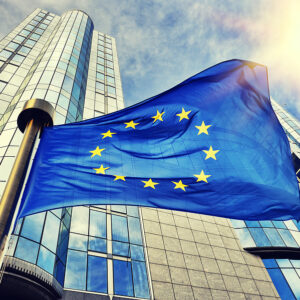European Union countries could soon have to hold a tough vote on proposals to curb aluminum imports. Because of the complexity of the issue, the European Commission has avoided such widespread rules blocking imports of the primary metal.
The global economy is in a fragile state. The slightest market interruptions could spell trouble for traders, consumers and businesses. Officials should tread carefully and recognize that while their motivations seem righteous, they could prematurely raise prices for all and increase global dependence on China.
From wind turbines to electric car batteries, aluminum is a critical mineral in everything the green transition plans to offer the world. The World Bank projects that demand for aluminum, cobalt, iron, lead, lithium, manganese and nickel will grow by more than 1,000 percent by 2050. As demand for the green revolution grows, sanctions continue to be a less effective tool. Higher raw material costs due to sanctions don’t decrease demand; they lead to increased production costs for manufacturers who rely on these materials.
The global economy can’t handle surprise shocks to its core right now. Inflation, high interest rates and attacks on commercial shipping vessels in the Red Sea have upended sustained commerce.
Despite all this, Politico broke the news on January 23 that EU diplomats were quietly drafting a proposal for a “full ban” on metal imports that would be voted on the following month. The result? Bloomberg reported the price of aluminum rose 3.2 percent in one day, “the biggest daily increase in a month.” If instantaneous price hikes occur due to one news leak on government proposals, then how does enacting permanent policy sound like a good idea for global markets?
For a decade, the European Commission has maintained a list of critical raw materials (CRMS) that are of “high importance to the EU economy and of high risk associated with their supply.” These CRMS cannot be domestically produced to match consumption, and they must be imported. The EU’s fifth update was published in 2023 and includes aluminum, merging it with bauxite for consistency. The report explicitly outlines Europe’s near total dependence on China for critical minerals used in battery manufacturing, “exposing the EU to significant supply risks.”
Reducing Europe’s access to aluminum from as many outside sources as possible does not strengthen Europe — it opens the door for Chinese-owned companies to permanently increase their control over European imports. Why limit European companies needing aluminum to a single source — the world’s largest refiner, China?
If the EU is serious about its green energy transition, it should allow European companies free access to quality low-carbon aluminum in nearby markets that keep prices down. Instead, the EU is proposing sanctions that limit access to these resources, slowing progress toward clean energy goals at a time when there is an urgent need to address climate change.
U.S. consumers don’t benefit from Europe’s sanctions either. America is still suffering because of the failure of former president Donald Trump’s tariffs on aluminum, which President Biden has kept in place. The tariffs were temporarily lifted on European imports within a quota, but they still have yet to be repealed. With Biden and Trump on the presidential ballot in November, America shouldn’t expect to get cheaper metal from Europe anytime soon, and vice-versa.
In fact, America is in a similar situation as Europe; it must import a large part of its aluminum to meet its vast consumption. As a result of tariffs that heavily reduced imports from quality sources, prices have steadily risen for domestic industries, pushing the cost downstream on consumers. Even the U.S. International Trade Commission confirmed that production of aluminum products rose 3.6 percent by 2021 while prices of aluminum products rose 1.6 percent. EU ministers be warned: fewer imports to the country raises prices downstream to consumers.
Tariffs haven’t protected U.S. industry from being shut out by more innovative competition. Last month, an aluminum smelter in Missouri announced it would close its doors, effectively removing one-third of America’s aluminum capacity in a week.
The consequences of sanctioning metals by the EU are not a black-and-white solution. The modern global economy is highly interconnected, and major disruptions — like comprehensive sanctions — will only punish Europe and its allies while empowering Chinese-owned mineral corporations to fill the gap.
Globally, it’s still challenging to compel companies and their consumers to buy into products and processes of the green energy transition. In what way is a proposed sanctions package on a significant part of the green energy transition going to alleviate that problem? European leaders should think long and hard about their short-term wins versus the long-term consequences of this decision.


